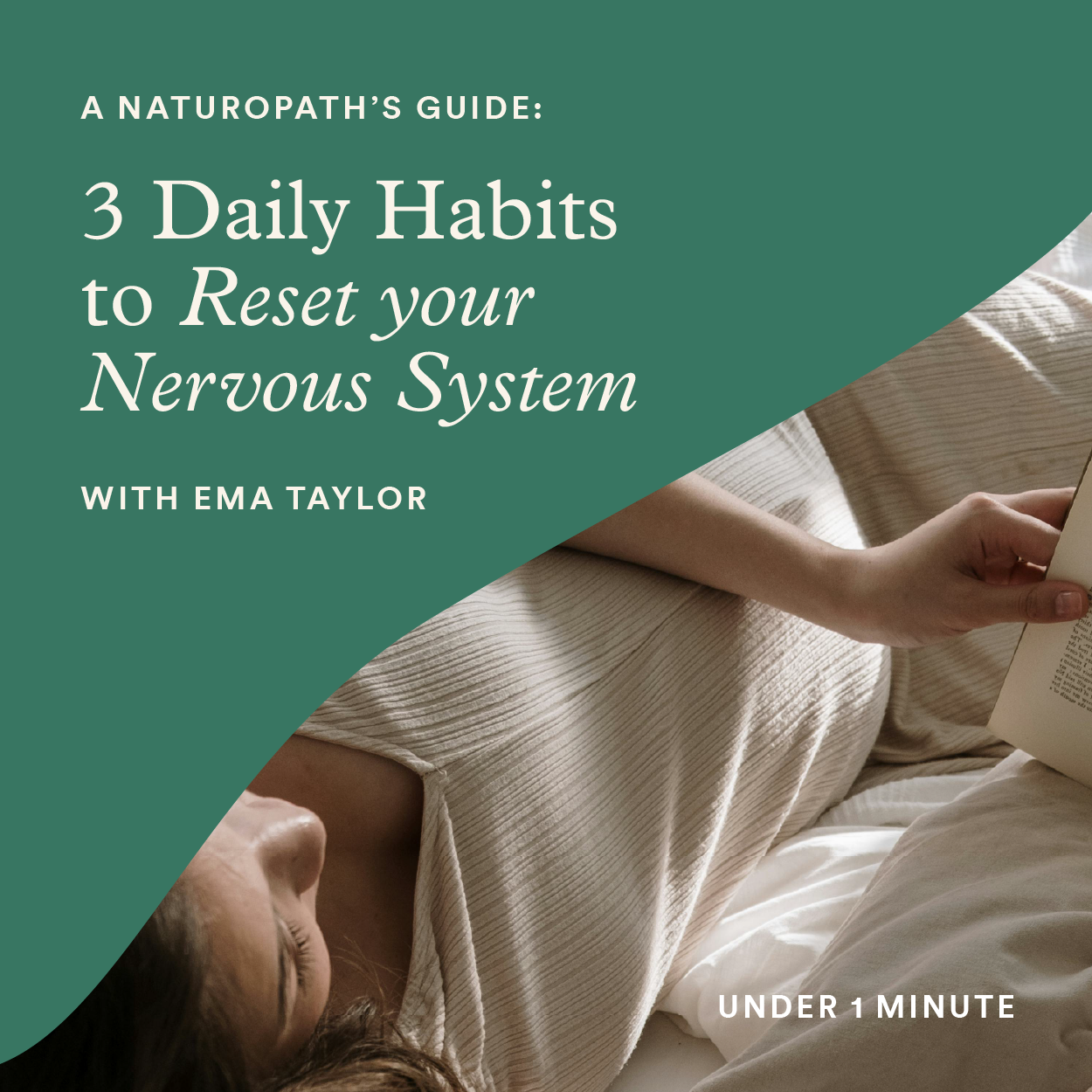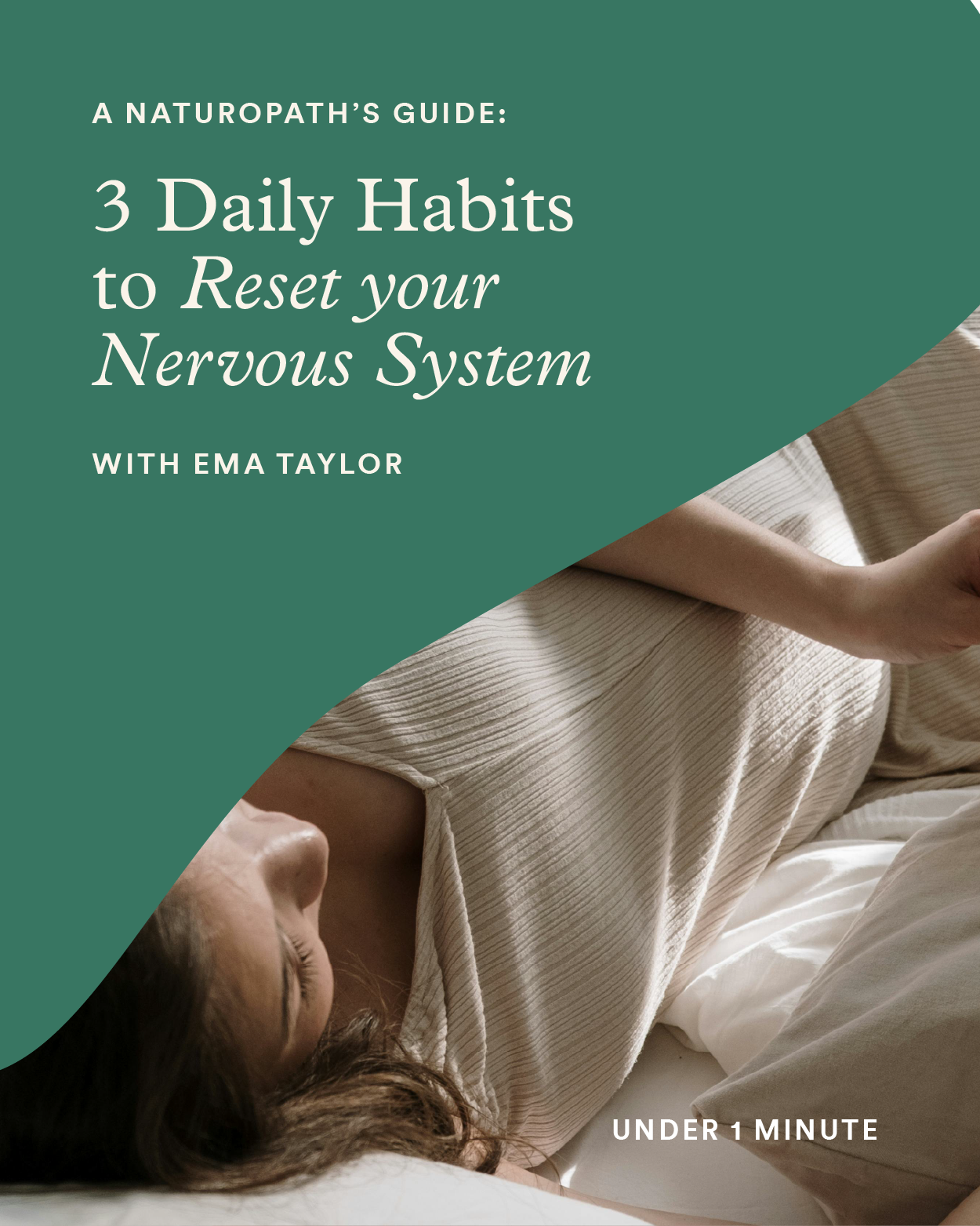WELCOME TO WEEK 5
Small Habits for a Calmer First Trimester
This week, Ema shares three simple practices to help promote calm, support energy levels, and ease the mental load of early pregnancy.
When your body’s doing a lot, small things can help
By Week 5, things are already shifting internally. Your hormones are rising. Your body’s beginning the early work of placenta development. You might be feeling more tired than usual, more reactive, or like your mind is moving faster than your body can keep up.
That’s normal and it’s often a sign that your nervous system could use a little extra care.
These practices are designed to help you settle, reset, and reconnect.
Even a few intentional breaths can interrupt a stress spiral. Belly breathing, also known as diaphragmatic breathing, activates your parasympathetic nervous system, the one responsible for rest, digestion, and recovery.
When your body feels wired or tense, this can help shift you into a calmer state without needing to “do” anything.
Try this now:
- Sit somewhere quiet, or lie down if that feels better.
- Place one hand on your chest and one on your belly.
- Inhale through your nose for 4 counts, expanding your belly.
- Exhale slowly through your mouth for 6 counts.
- Repeat 5 times.
You can do this in bed, in the car, or even standing in the kitchen. Let it be messy. Let it be simple.
When your thoughts are racing or your energy feels heavy, a change in environment, especially outdoors, can have a noticeable effect. Research shows that time in nature reduces cortisol, the primary stress hormone, and improves mental clarity.
You don’t need a long hike or a beautiful park. Just a few minutes of sun, fresh air, or green space can help regulate your nervous system and bring you back into your body.
Try this now:
- Step outside for 5–10 minutes.
- Leave your phone inside if possible.
- Breathe slowly and look around; trees, sky, grass, clouds.
- Let your senses guide you back to the moment.
Even sitting on a step, balcony or garden patch counts.
The work your body is doing at this stage is mostly invisible, but it’s massive and requires real rest. Hormonal changes, especially rising progesterone, can also make you feel more tired or more emotionally reactive than usual.
Sleep isn’t just about feeling rested. It supports hormonal balance, emotional stability, and early foetal development.
A simple routine:
- Head to bed a little earlier than usual, before 10 p.m. if you can.
- Avoid screens and heavy meals in the hour before sleep.
- Try a simple wind-down: dim lights, read something calming, do a gentle stretch, or journal for 5 minutes.
You don’t have to overhaul your routine. Start by protecting just one hour before bed and let your body take it from there.


*The content on this page is provided for educational purposes only and is not intended to replace professional medical advice, diagnosis, or treatment. Always consult your healthcare provider with any questions or concerns regarding your health or pregnancy.
Up Next: Week 6
Morning Sickness Starting to Show Up?
Try four gentle, food-first ways to settle your stomach and keep your energy steadier through the day.
Feeling Behind?
Explore All Weekly Guides
All your weekly guides gathered together for easy access, symptom insights, and timely support.
Support for Every Stage
These are Ema’s go-to formulas when a little more support is needed; thoughtfully made and pregnancy safe.







